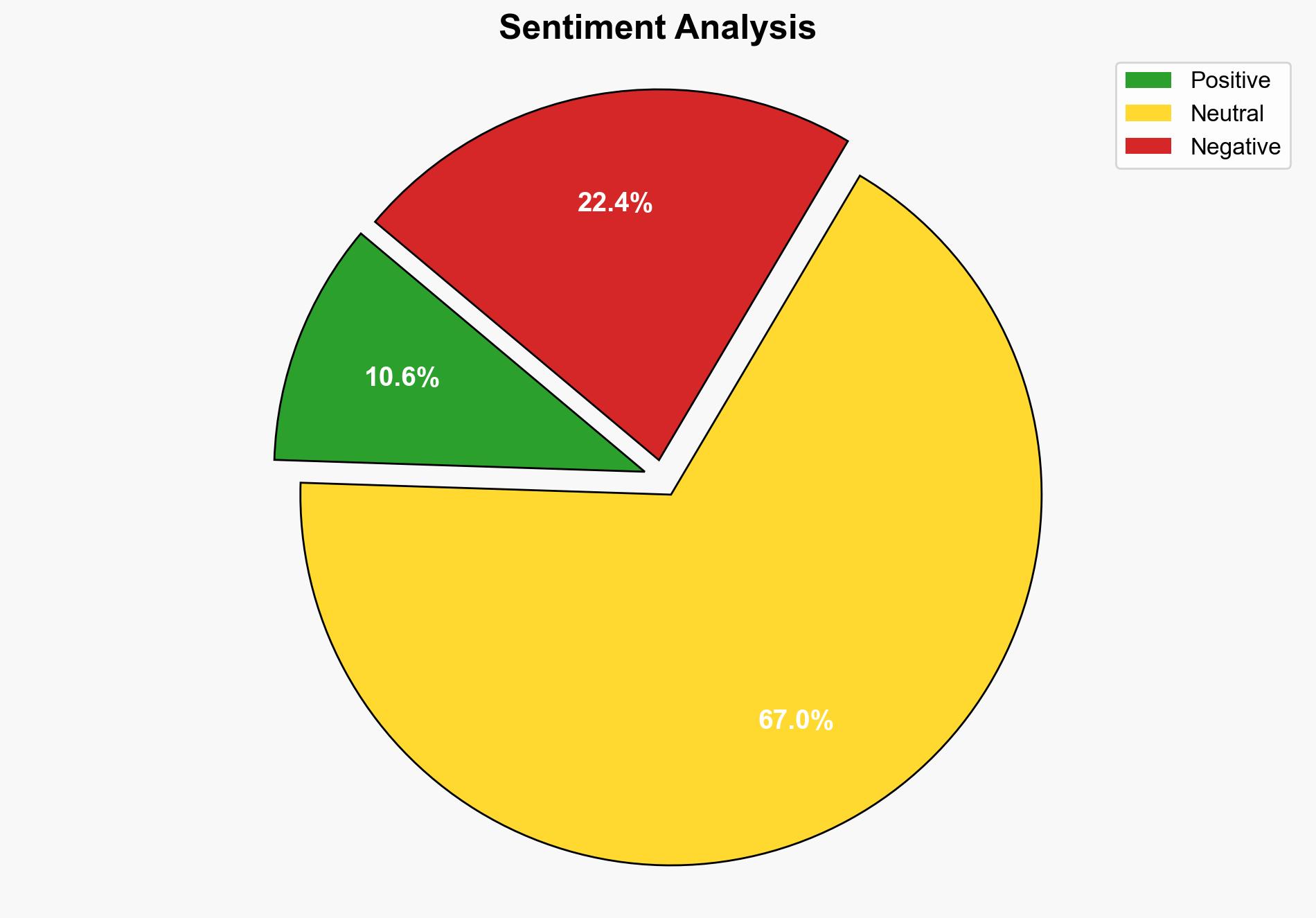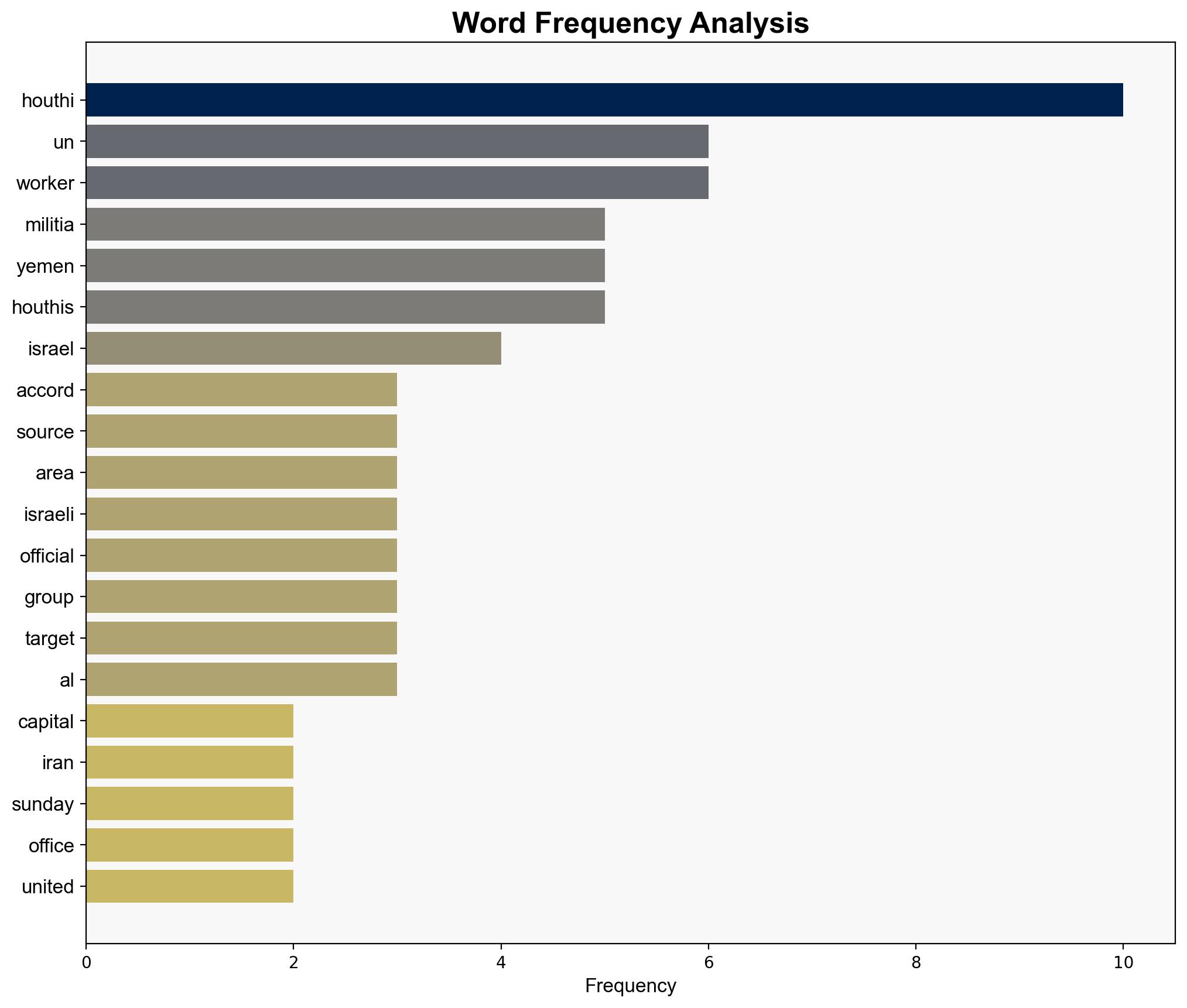Report UN aid workers detained by Houthi militia in Yemen’s capital – Dpa-international.com
Published on: 2025-08-31
Intelligence Report: Report UN aid workers detained by Houthi militia in Yemen’s capital – Dpa-international.com
1. BLUF (Bottom Line Up Front)
The most supported hypothesis is that the detention of UN aid workers by the Houthi militia is a strategic move to leverage international attention and pressure in response to recent geopolitical tensions involving Israel. Confidence level is moderate due to limited direct evidence. Recommended action is to increase diplomatic engagement with regional stakeholders to secure the release of the workers and mitigate further escalation.
2. Competing Hypotheses
Hypothesis 1: The detention of UN aid workers is a strategic maneuver by the Houthi militia to gain leverage in international negotiations, particularly in light of recent Israeli actions and the ongoing conflict in Gaza. This aligns with the pattern of using high-profile detentions to draw attention to their political grievances and demands.
Hypothesis 2: The detention is primarily a security measure by the Houthi militia, driven by internal paranoia about espionage and infiltration by foreign entities. This hypothesis is supported by past incidents where local workers were accused of spying for the United States.
Using ACH 2.0, Hypothesis 1 is better supported due to the timing of the detentions coinciding with heightened regional tensions and the Houthi’s public statements about retaliatory actions against Israel.
3. Key Assumptions and Red Flags
Assumptions include the belief that the Houthi militia’s actions are primarily driven by external geopolitical events rather than internal security concerns. A red flag is the lack of direct statements from the Houthi leadership regarding the specific reasons for the detention, which could indicate deception or strategic ambiguity. Additionally, there is a blind spot concerning the internal dynamics within the Houthi leadership that may influence decision-making.
4. Implications and Strategic Risks
The detention could escalate tensions in the region, potentially leading to increased military actions by Israel and its allies. This situation may also strain humanitarian efforts in Yemen, exacerbating the already dire conditions. There is a risk of cascading effects if other regional actors perceive the detentions as a precedent for similar actions. Economically, prolonged detentions could impact aid flows and international support for Yemen.
5. Recommendations and Outlook
- Engage in diplomatic dialogues with regional powers, including Iran and Saudi Arabia, to facilitate the release of the detained workers.
- Enhance intelligence-sharing mechanisms to better understand the internal motivations of the Houthi leadership.
- Scenario-based projections:
- Best Case: Diplomatic efforts lead to the swift release of the workers, reducing tensions.
- Worst Case: The situation escalates into broader regional conflict, involving multiple state and non-state actors.
- Most Likely: Prolonged negotiations with intermittent escalations in military actions.
6. Key Individuals and Entities
Abdel Malek al-Houthi, the Houthi militia, United Nations agencies (WFP, UNICEF), Israel, Palestinian Islamist Hamas movement.
7. Thematic Tags
national security threats, regional focus, geopolitical tensions, humanitarian crisis





